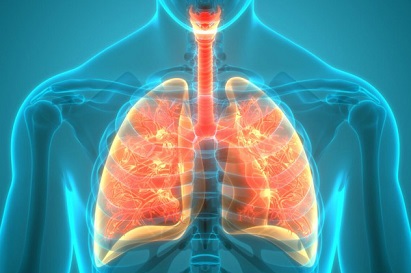Unraveling The Zinc Pathway - A Promising Breakthrough For Cystic Fibrosis Treatment
Nikhil Prasad Fact checked by:Thailand Medical News Team Feb 26, 2024 1 year, 1 month, 4 weeks, 21 hours, 45 minutes ago
Cystic Fibrosis (CF), a chronic genetic disease affecting around 3,600 Australians, poses a significant threat to the lives of those afflicted, with an average life expectancy of only 47 years. The disease is characterized by defects in the cystic fibrosis transmembrane conductance regulator (CFTR) channel, leading to the accumulation of mucus in the lungs, airways, and digestive system, consequently causing recurrent infections. Recent research conducted by the University of Queensland's Institute for Molecular Bioscience has unearthed a groundbreaking discovery related to the immune system's response to bacterial infections in
Cystic Fibrosis (CF) patients, potentially paving the way for innovative treatments.
 Unraveling The Zinc Pathway - A Promising Breakthrough For Cystic Fibrosis Treatment
The Zinc Pathway and CFTR Dysfunction
Unraveling The Zinc Pathway - A Promising Breakthrough For Cystic Fibrosis Treatment
The Zinc Pathway and CFTR Dysfunction
The team, led by Professor Matt Sweet along with Dr Kaustav Das Gupta and Dr James Curson, focused on understanding the role of immune cells called macrophages in people with Cystic Fibrosis. They identified a fault in a zinc pathway crucial for the bacteria-killing function of these immune cells. Professor Sweet explained that macrophages typically eliminate bacteria by poisoning them with toxic levels of metals, such as zinc. However, the dysfunction in the CFTR ion channel observed in Cystic Fibrosis patients compromises this zinc pathway, making them more susceptible to bacterial infections.
The Zinc Transport Protein Solution
In addition to identifying the deficiency, the researchers pinpointed a potential solution - a zinc transport protein that can restore the macrophages' ability to combat bacteria even when the CFTR protein is malfunctioning. The goal now is to deliver this zinc transport protein to the macrophages of Cystic Fibrosis patients, with the expectation that it will reactivate their immune response and subsequently reduce infections. This discovery offers a glimmer of hope for the thousands of individuals grappling with Cystic Fibrosis (CF), as it presents a targeted approach to address the underlying immune system dysfunction associated with the disease.
Collaborative Efforts for Comprehensive Care
Professor Dr Peter Sly, a pediatric respiratory physician at UQ's Child Health Research Center and a key collaborator on the project, highlighted the significance of understanding how Cystic Fibrosis affects the immune system for improving patient care. Cystic Fibrosis patients often experience a hyper-inflammatory state in their airways, making them highly susceptible to bacterial infections. While current treatments, including combination drugs like elexacaftor-tezacaftor-ivacaftor (ETI), can restore certain aspects of CFTR function, they fall short in preventing or resolving lung infections. The collaborative efforts of researchers like Professor Sly and Professor Mark Schembri from IMB aim to bridge this gap by exploring ways to restore immune functions in Cystic Fibrosis (CF) patients.
Linking CFTR and Macrophage Zinc Toxicity Response
The researc
h, titled "CFTR is required for zinc-mediated antibacterial defense in human macrophages," delves into the connection between CFTR and the macrophage zinc toxicity response. The study, utilizing both pharmacological approaches and cells derived from Cystic Fibrosis patients, revealed that CFTR plays a pivotal role in the uptake and clearance of pathogenic bacteria, such as Escherichia coli, by primary human macrophages. CFTR was also found to be essential for E. coli-induced zinc accumulation and vesicle formation within macrophages, ultimately contributing to the bacteria-killing process.
Restoration of Zinc Toxicity Response as a Therapeutic Strategy
The findings suggest that manipulating zinc availability could be a viable therapeutic strategy to restore bacterial killing in CFTR-defective macrophages. The study demonstrated that ectopic expression of the zinc transporter SLC30A1 or treatment with exogenous zinc was sufficient to revive antimicrobial responses against E. coli in human macrophages. Furthermore, zinc supplementation successfully reinstated bacterial killing in macrophages responding to Pseudomonas aeruginosa, a common respiratory pathogen relevant to Cystic Fibrosis.
Conclusion
The University of Queensland's groundbreaking research sheds light on the intricate relationship between CFTR dysfunction, the macrophage zinc toxicity response, and bacterial infections in individuals with cystic fibrosis. The identification of a zinc transport protein capable of restoring immune functions opens up new possibilities for targeted treatments, providing hope for enhanced care and prolonged life expectancy for those living with Cystic Fibrosis. As collaborative efforts continue to unfold, this discovery marks a crucial step towards a more comprehensive understanding and management of cystic fibrosis, potentially transforming the landscape of Cystic Fibrosis treatment.
The study findings were published in the peer reviewed journal: Proceedings of the National Academy of Sciences (PNAS).
https://www.pnas.org/doi/10.1073/pnas.2315190121
For the latest on
Cystic Fibrosis, keep on logging to Thailand Medical News.
